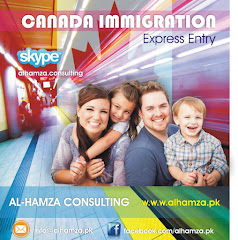Geography
- Full country name: Canada
- Population: 33.5 million, and nearly 90% live within 200km of the southern border with the United States
- Border countries: United States
- Climate: temperatures vary widely by location in the country, and can range from a continental climate with harsh winters in the interior provinces to more temperate weather with mild, rainy winters in south-western areas.
- Terrain: Canada is the world’s second largest country, and encompasses a variety of terrains including extensive flat prairies, mountainous and coastal areas, and frozen landscapes.
Living in Canada
- Cost of living: the cost of living in Canada is cheaper compared to the UK and many other western countries. Education in Canada has estimates of costs for typical items and services that can act as useful guidelines. As in the UK, there are considerable differences between living costs in different regions, and particularly between the large cities and the rural areas.
- Utilities: utilities that often have to be paid for on top of the rent bill include hydro, gas, water and phone. The cost of utilities depends on a number of factors, such as which services are included, how many people split the costs and the size of the house.
- Internet domain: .ca
- Health: Canada’s health care system, commonly known as Medicare, is funded through taxes and provides access to medically necessary hospital and primary care. Canadian citizens and permanent residents are eligible for coverage, though they may be a three month waiting period upon arrival, during which it is recommended to buy private health insurance. Non-residents are advised to apply for travel health insurance if their regular policy does not cover them when abroad, as paying for services at the point of delivery can be prohibitively expensive.
- Laws and customs: Canada is a proudly multicultural society, and all newcomers are expected to abide by its laws and respect the Charter of Rights and Freedoms, which prohibits discrimination based on ethnic origin, religion, colour, sex, age, and mental and physical disabilities.
Economy and finance
- Currency: Canadian dollar = 100 cents
- Type of economy: mixed market economy and one of the world’s top 10 trading nations
- Health of economy: one of the world’s wealthiest nations and a member of OECD, Canada has enjoyed steady economic growth between 1997 and 2007. However, growth has slowed sharply in 2008 as a result of the global economic downturn and tight global credit conditions are further constraining business and housing investment (CIA, 2009)
- Unemployment rate: 8.6% (Statistics Canada, 2009)
- Main exports: motor vehicles and parts, industrial machinery, aircraft, telecommunications equipment, electronics, chemicals, plastics, fertilizers, wood pulp, timber, crude petroleum, natural gas, electricity, aluminium
Culture
- People: one in five Canadians are foreign born. Ethic origins include: British (28%), French (23%), other European (15%).
- Major religion: Roman Catholic (42.6%), Protestant (23.3%) other Christian (4.4%), Muslim (1.9%), other and unspecified (11.8%), no affiliation (16%) (2001 census).
- Local etiquette: important Canadian social practices include being on time, queuing according to the principle of 'first-come, first-served', not smoking in private homes, respecting the environment and avoiding littering. Bargaining for a better price is not common but there are some exceptions, such as when buying a house or a car. The price on marked goods in stores does not usually include the federal and provincial sales taxes, which add from 7% to 15% to the cost of an item depending on the province in which it is sold.
Politics
- Type of government: Parliamentary democracy and federation, with Queen Elizabeth II - represented by the Governor General - as the head of state
- Major political parties: Liberal Party, Conservative Party, New Democratic Party, Bloc Quebecois, Green Party










